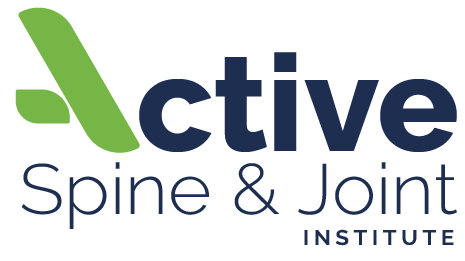Advanced Treatments for Chronic Joint Pain: Why Prescription Medications and Surgery May Not Be Your Only Options
Chronic joint pain can be a debilitating condition that affects millions of people in the United States, and southern New Jersey is no exception. According to the Centers for Disease Control and Prevention (CDC), nearly 1 in 4 adults in the United States suffer from some form of arthritis, which is a leading cause of chronic joint pain. For those living in southern New Jersey, there is a range of advanced treatments that offer an alternative to prescription medications and surgery. It may be time for you to explore these advanced treatments and explain why they may be better options for treating chronic joint pain.
Prescription medications have long been the go-to treatment for chronic joint pain, but they come with a range of risks and side effects. Common painkillers such as acetaminophen and nonsteroidal anti-inflammatory drugs (NSAIDs) can cause stomach ulcers, kidney damage, and even heart attacks. Additionally, opioid painkillers such as oxycodone and hydrocodone are highly addictive and can lead to dependence, overdose, and death. For these reasons, prescription medications should only be used as a last resort for chronic joint pain.
Surgery, such as total hip or knee replacements, is often recommended for those with chronic joint pain that is severe and not responding to other treatments. However, surgery is not without its risks. Complications can include infection, blood clots, and nerve damage. Recovery can be long and painful, and there is no guarantee that surgery will alleviate all of the pain and discomfort.
Fortunately, there are alternative treatments available that can help alleviate chronic joint pain without the risks and side effects of prescription medications and surgery. Here are some of the advanced treatments that are available:
Active Cell Method: This is a cutting-edge treatment that uses your own healing cells to repair damaged tissue and alleviate pain. Your body has cells with specific healing properties that have the ability to differentiate into any type of cell in the body, making them a powerful tool in regenerative medicine. The Active Cell Method involves harvesting these cells from the patient's own blood and then injecting them into the affected joint. The cells then promote tissue repair and reduce inflammation, leading to a reduction in pain.
PulseWave Therapy: This treatment uses acoustic waves to stimulate blood flow and promote healing in the affected joint. The sound waves are delivered through a wand that is placed on the skin over the affected joint. The waves create microtrauma in the tissues, which stimulates the body's natural healing response. PulseWave Therapy is noninvasive and has no known side effects.
Robotic M6 Cold Laser: This treatment uses low-level laser light to stimulate the body's natural healing response and reduce inflammation in the affected joint. The laser light penetrates deep into the tissue, triggering a cellular response that increases blood flow and stimulates the production of collagen and other essential proteins. This process helps to reduce pain and swelling while promoting healing and tissue regeneration. Cold Laser Therapy is a safe and noninvasive treatment that has been shown to be effective in treating chronic joint pain. It has no known side effects and can be performed on an outpatient basis, making it a convenient and accessible option for those seeking relief from chronic joint pain.
Electric Cell Signaling Therapy (ECST): This innovative treatment uses electric signals to stimulate the body's natural healing response in the affected joint. During the procedure, a device delivers mild electrical pulses to the affected area, which helps to reduce inflammation and pain while promoting healing. ECST is a noninvasive treatment that has been shown to be effective in treating chronic joint pain. It has no known side effects and can be performed on an outpatient basis, making it a great alternative to prescription medications and surgery.
All of these advanced treatments have been shown to be effective in treating chronic joint pain, and they offer a range of benefits over prescription medications and surgery. First and foremost, they are noninvasive and have no known side effects. This means that patients can avoid the risks associated with prescription medications and surgery. Additionally, these treatments are often less expensive than surgery and can be performed on an outpatient basis, meaning that patients can return home the same day.
In conclusion, chronic joint pain can be a debilitating condition that affects millions of people in the United States, including those living in southern New Jersey. Prescription medications and surgery may not always be the best options for treating chronic joint pain, especially considering their associated risks and potential side effects. Fortunately, advanced treatments like the Active Cell Method, PulseWave Therapy, Cold Laser Therapy, and Electric Cell Signaling Therapy (ECST) are available and offer a safer and more effective alternative for those who are suffering from chronic joint pain. These treatments have the potential to reduce pain, promote healing, and improve the overall quality of life, without the need for prescription medications or invasive surgery. If you are struggling with chronic joint pain, consider exploring these advanced treatments with your healthcare provider to find the best option for your individual needs.

